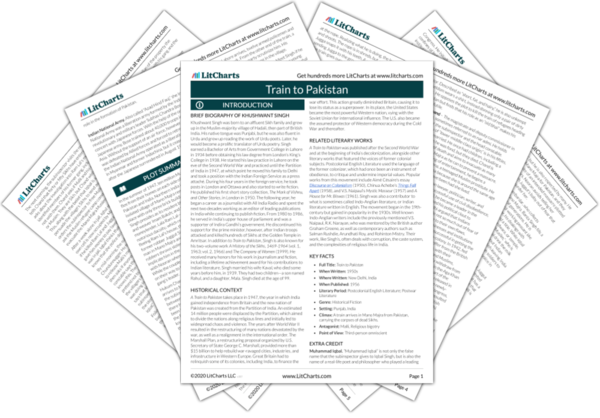Hukum Chand Quotes in Train to Pakistan
2. Kalyug Quotes
He lay down again with his hands over his eyes. Within the dark chambers of his closed eyes, scenes of the day started coming back in panoramic succession. He tried to squash them by pressing his fingers into his eyes. The images only went blacker and redder and then came back. There was a man holding his intestines, with an expression in his eyes which said: “Look what I have got!” There were women and children huddled in a corner, their eyes dilated with horror, their mouths still open as if their shrieks had just then become voiceless … And all the nauseating smell of putrefying flesh, feces and urine.
It all came from his belief that the only absolute truth was death. The rest—love, ambition, pride, values of all kinds—was to be taken with a pinch of salt. He did so with a clear conscience. Although he accepted gifts and obliged friends when they got into trouble, he was not corrupt. He occasionally joined in parties, arranged for singing and dancing—and sometimes sex—but he was not immoral. What did it really matter in the end? That was the core of Hukum Chand’s philosophy of life, and he lived well.
“Sir, the Babu’s name is Iqbal Singh. He is a Sikh. He has been living in England and had his long hair cut.” The subinspector fixed the head constable with a stare and smiled. “There are many Iqbals. I am talking of a Mohammed Iqbal, you are thinking of Iqbal Singh. Mohammed Iqbal can be a member of the Muslim League.” “I understand, sir,” repeated the head constable, but he had not really understood. He hoped he would catch up with the scheme in due course. “Your orders will be carried out.”












